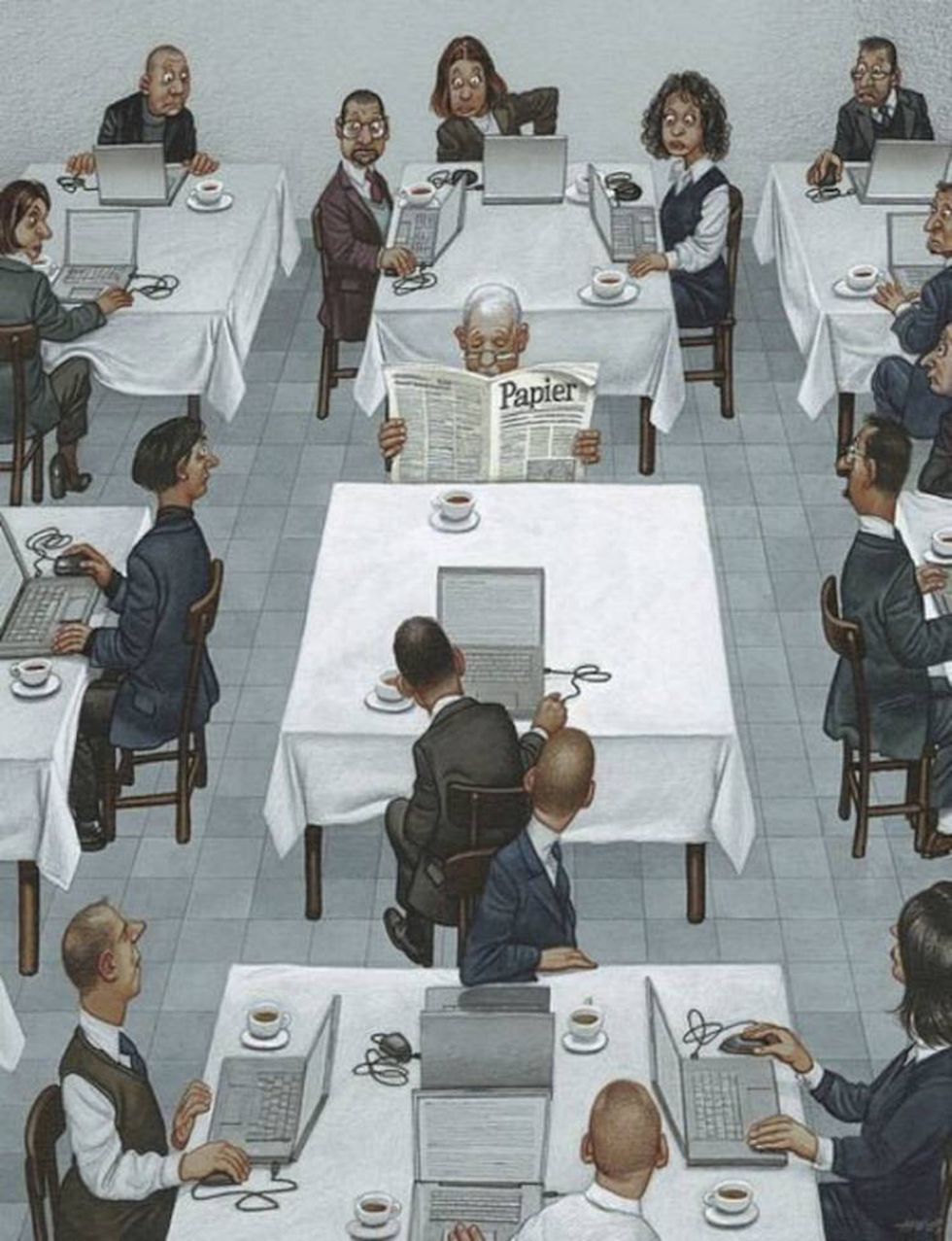To start off, I will mention that the irony in my publishing this article through an online news source is not lost on me. However, there is no denying the disheartening truth that digital media has taken a wave so strong that it has nearly pushed all printed sources from the shelves and put many bookstores, news stands, and public libraries out of business.
With the advancement of technology, news companies and authors have opted to switch their means of publication digitally. Originally, this was meant to be a nod to environmentalism by avoiding paper publications and the inevitable disadvantages that came with it such as discarding hundreds of thousands of newsprints that simply did not sell. Of course publication companies loved this excuse to be able to graciously call themselves a 'green' network while simultaneously avoiding the torrential amount of money being tossed out the window along with these access copies that failed to sell. Within a few years, these companies found new reasons to solely publish digitally. They found that with the help of virtual media outlets, their books, articles, and sources were able to conveniently reach a wider audience and with the accessibility of tags and advertisements they could target a specific crowd of readers who may be interested in their works. For example, The Skimm and Buzzfeed targets young adults by posting entertaining videos and being featured through YouTube while HerCampus and The Odyssey Online leans specifically toward young women by advertising through social media, beauty websites, and blogs. In addition, more virtual newspapers and e-books are sold because publishers mark down the prices of their digital prints due to no longer needing to incorporate the cost of materials in their prices.
It is imperative to note that certain digital media outlets compensate their writers based on the number of hits, 'likes', and shares they receive. Thus, readers can rarely be sure whether what they are reading is factual or simply clickbait. Often young writers choose to compose listicles as they appear to be one of the greatest ways to draw in traffic from young readers who would rather read something short and 'fun' than a more substantive and informative piece.
As the onslaught of digital media progresses, we see far more e-readers and far less book stores. We no longer find it necessary to take a trip to the library with the intent to search the archives for a certain historical news publication. Why make a special trip out when everything we need is just at the tips of our fingers? Are we no longer infused by that glorious scent of a new book or the magical musty aroma of a worn one? Do we now prefer the sleek metal of our iPads and e-readers to that uniquely unparalleled feel of a hard-bound book? Is the loss of our entire personal library from a slip of the hand as our devices crash into a million pieces against the hot summer concrete in exchange for a cheaper digital publication worth the risk? Is the look of an electronic resting on the coffee table more esthetically pleasing than being able to display the hundreds of books with which we share personal ties along our shelves?
Society has progressed but at a personal cost. Yes, we save money but we are unable to attain as much knowledge as we once could. Nor can we preserve the literary mementos of our childhood and adult life.
















